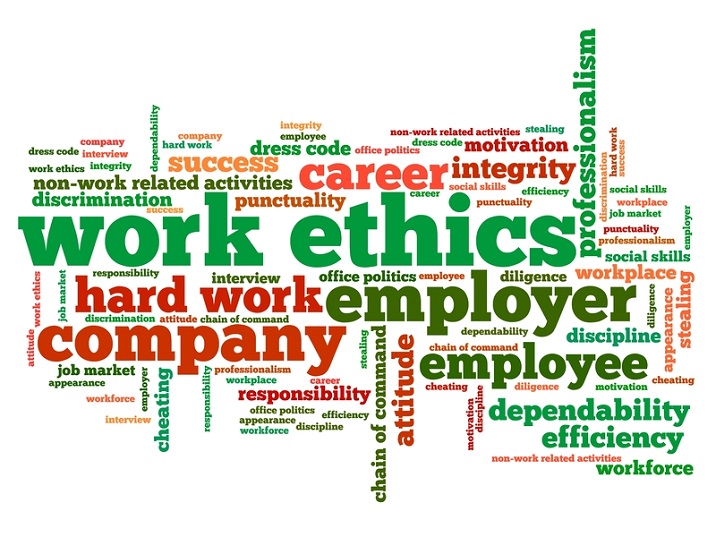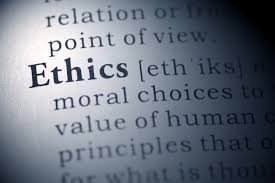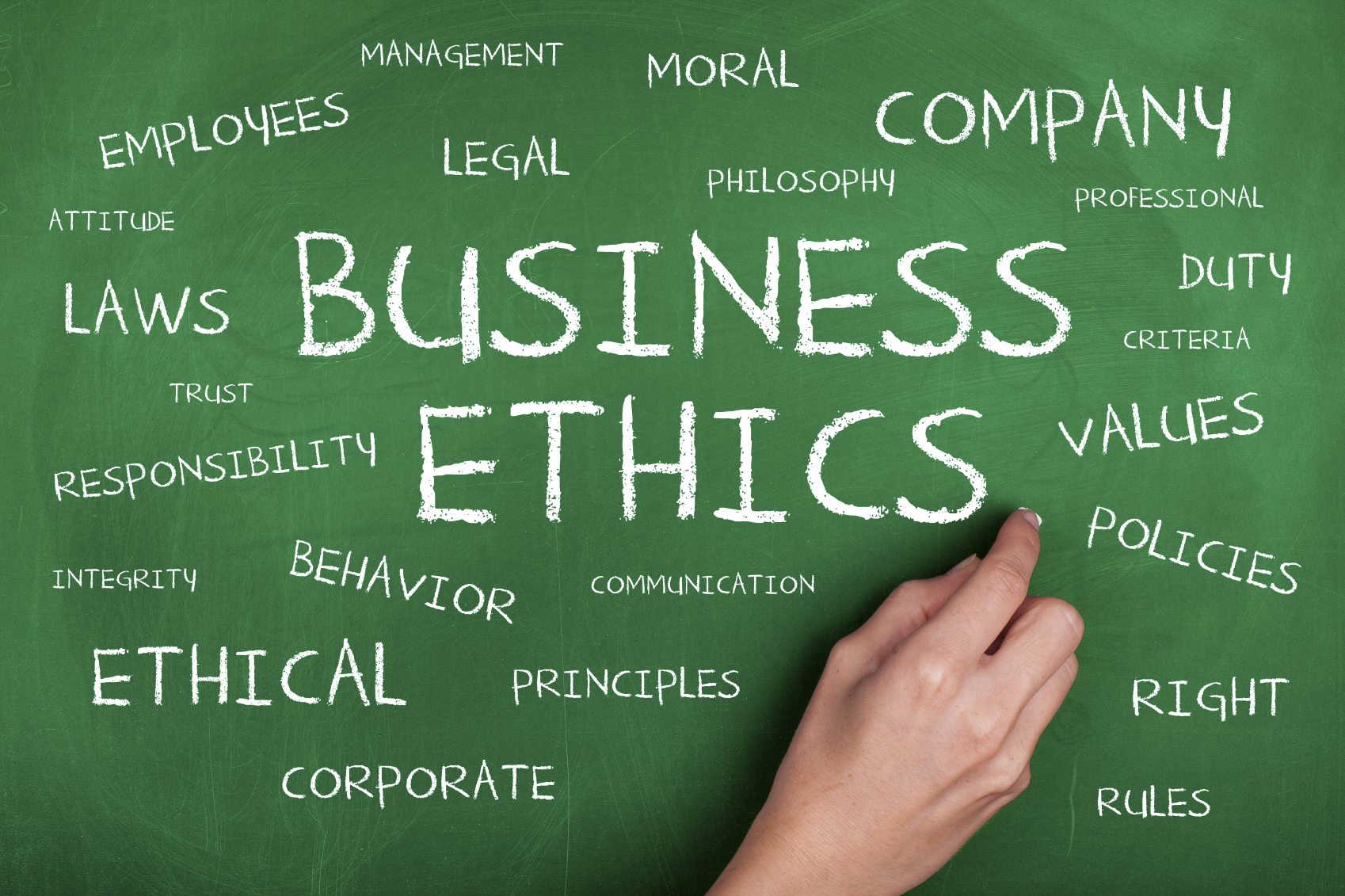BUSINESS ETHICS Business ethics (also known as corporate ethics) is a form of applied ethics or professional ethics, that examines ethical principles and moral or ethical problems that can arise in a business environment. It applies to all aspects of business conduct and is relevant to the conduct of individuals and entire organizations. These ethics originate from individuals, organizational statements or from the legal system. These norms, values, ethical, and unethical practices are the principles that guide a business. They help those businesses maintain a better connection with their stakeholders.
Business ethics refers to contemporary organizational standards, principles, sets of values and norms that govern the actions and behavior of an individual in the business organization. Business ethics have two dimensions, normative business ethics or descriptive business ethics. As a corporate practice and a career specialization, the field is primarily normative. Academics attempting to understand business behavior employ descriptive methods. The range and quantity of business ethical issues reflects the interaction of profit-maximizing behavior with non-economic concerns.
Interest in business ethics accelerated dramatically during the 1980s and 1990s, both within major corporations and within academia. For example, most major corporations today promote their commitment to non-economic values under headings such as ethics codes and social responsibility charters.
Adam Smith said, "People of the same trade seldom meet together, even for merriment and diversion, but the conversation ends in a conspiracy against the public, or in some contrivance to raise prices." Governments use laws and regulations to point business behavior in what they perceive to be beneficial directions. Ethics implicitly regulates areas and details of behavior that lie beyond governmental control. The emergence of large corporations with limited relationships and sensitivity to the communities in which they operate accelerated the development of formal ethics regimes.
HUMAN RESOURCES
Human Resource Management (HRM) deals with work force management, manpower planning and other employee related activities in an organization. Therefore, we can say that it is a special branch of management where ethics play a crucial role. HRM concerns human issues, especially those related with compensation, development, industrial relations, health and safety issues. However, there are sufficient disagreements in managing HRM issues that stem from various quarters.
HRM Ethics
Out of all organizational issues or policies, ethical considerations are the most difficult to deal with. Issues arise in employment, remuneration and benefits, industrial relations and health and safety.

MARKETING
PRINCIPLES OF MARKETING
All marketing communications share the common standard of truth.
Marketing professionals abide by the highest standard of personal ethics.
Advertising is clearly distinguished from news and entertainment content.
Marketers should be transparent about who they pay to endorse their products.
Consumers should be treated fairly based on the nature of the product and the nature of the consumer (e.g. marketing to children).
The privacy of the consumer should never be compromised.
Marketers must comply with regulations and standards established by governmental and professional organizations.
Ethics should be discussed openly and honestly during all marketing decisions.
Ethical marketing is less of a marketing strategy and more of a philosophy that informs all marketing efforts. It seeks to promote honesty, fairness, and responsibility in all advertising. Ethics is a notoriously difficult subject because everyone has subjective judgments about what is “right” and what is “wrong.” For this reason, ethical marketing is not a hard and fast list of rules, but a general set of guidelines to assist companies as they evaluate new marketing strategies.
FINANCE
Ethics in general is concerned with human behavior that is acceptable or "right" and that is not acceptable or "wrong" based on conventional morality. General ethical norms encompass truthfulness, honesty, integrity, respect for others, fairness, and justice. They relate to all aspects of life, including business and finance. Financial ethics is, therefore, a subset of general ethics.
Ethical norms are essential for maintaining stability and harmony in social life, where people interact with one another. Recognition of others' needs and aspirations, fairness, and cooperative efforts to deal with common issues are, for example, aspects of social behavior that contribute to social stability. In the process of social evolution, we have developed not only an instinct to care for ourselves but also a conscience to care for others. There may arise situations in which the need to care for ourselves runs into conflict with the need to care for others. In such situations, ethical norms are needed to guide our behavior. As Demsey (1999) puts it: "Ethics represents the attempt to resolve the conflict bet-ween selfishness and selflessness; between our material nee conscience." 
